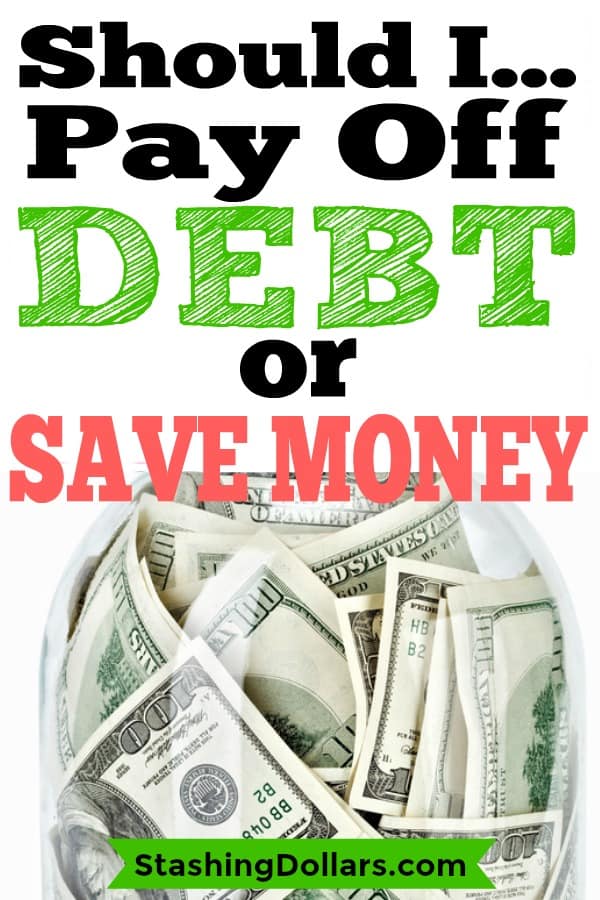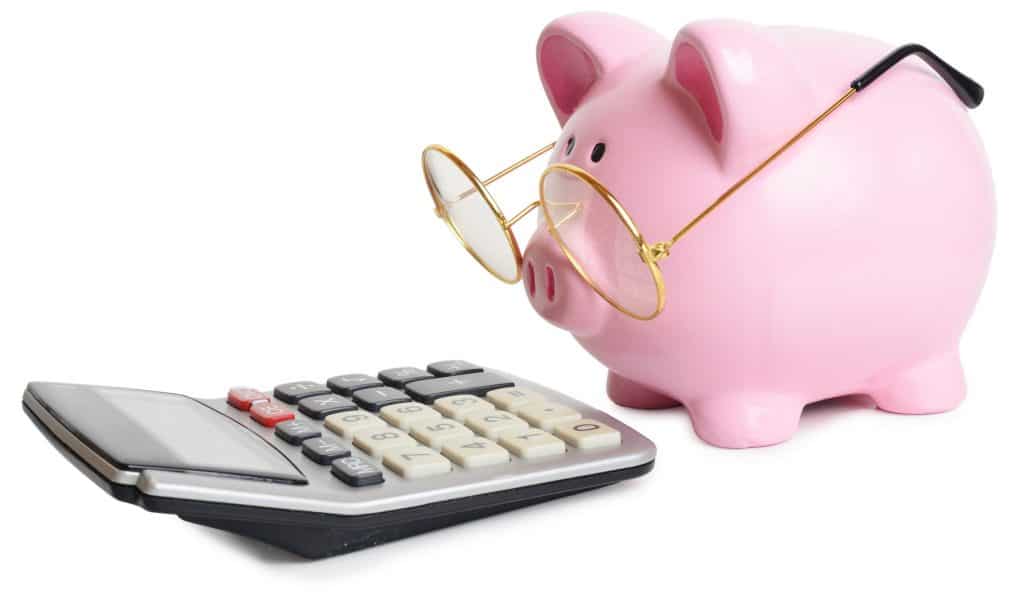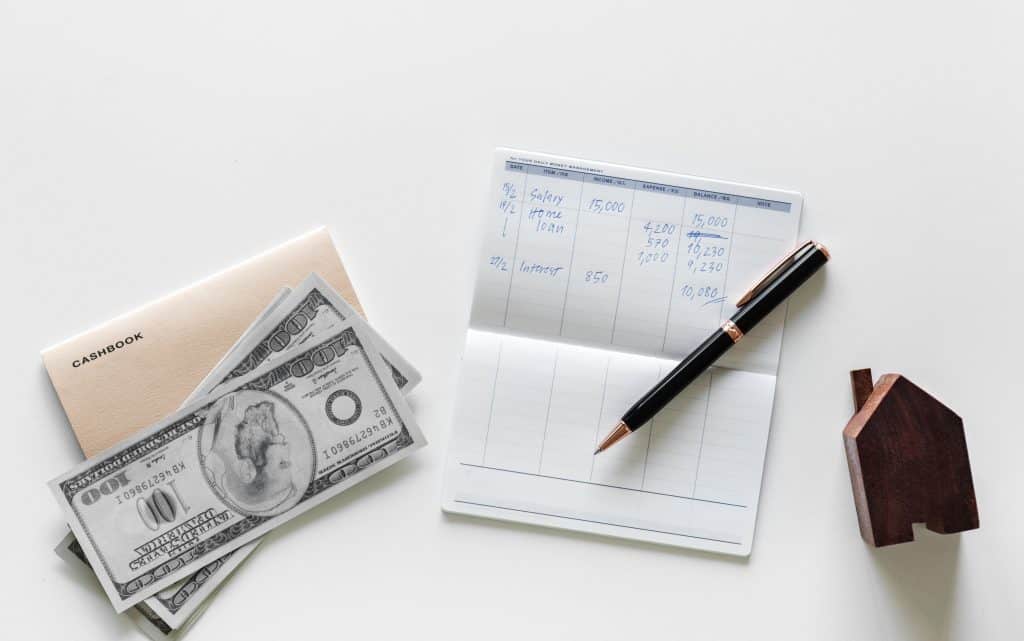
When the question of money comes up and the discussion turns to paying off debt vs saving money, which should you do first?
First off, I don’t necessarily think there is any right or wrong way to answer this question. It is more about what is right for you and where you are in your financial journey.
Ideally, the answer would be “both”. If you have debt, you should have a plan for repayment. And at the very least, you should have money saved in an emergency fund.
But it is not always that cut and dried. Deciding where your money should go can be challenging.
I think the kind of debt you have can also makes a difference in how spend your money.
This post may contain affiliate links. Please read our disclosure policies for more details.
I absolutely hate debt, but the truth is many of us would not own homes, have college degrees or even own cars if we did not take on a certain amount of debt.
I even understand having a major credit card. There are certain things you just cannot do without a credit card, such as; rent a car or make a hotel reservation.
It is all the other things that are charged on credit cards that can cause the problem. And store credit cards, I am not even sure why they exist…but they do.
Okay, so debt repayment or saving? In my life, an emergency fund comes first. It depends on who you talk to how much you should have in an emergency fund.
If you have mortgage debt only, I think 3 – 6 months of easy to get to liquid money (some type of savings account) is a good number for an emergency fund. Does 3 – 6 months of savings sound overwhelming?
Start out with $1,000 and see how fast you can get there. Commit to living with less and sell what you do not need to get to the $1,000 mark more quickly.
If you have high interest debt, the more quickly you can get it paid off the more money you will be keeping in your bank account.
Nothing good has ever come from credit card debt. You will one day look back on all the money that goes to credit card and interest payments and wonder what could have been.
Repaying high interest debt should be your first priority after your emergency fund is safely in the bank.
There are a few different methods for creating a debt repayment plan. One is not necessarily better than the other.
It is more about what is going to motivate you to be aggressive with your debt repayment. Debt consolidation may be an option that will help you pay less interest and save you money in the long run.
A debt management program can also be a way of getting your interest rates reduced on credit card debt.
Student loan debt is a little different than other types of unsecured debt. The interest rate is generally much lower. Payments are often deferred and may be based on income.
While these deferments may be great if you do not have the income to pay, but they all add up to owing more money when you do start making payments.
Student loan interest rates start around 5% and go up from there depending on whether the loans are federal or private.
With many investments making more than the interest rate on student loans, the question then becomes whether you should pay down the student loan aggressively or invest any additional money.
How you answer this question depends on your individual situation. If you are okay with having debt and the money made from the investments is more than the interest being paid on the loan, I say go for it.

How to Create a Debt Repayment Plan
Are These Stupid Excuses Keeping You in Debt?
How to Pay Off Debt Quickly in 5 Simple Steps
However, many people (me included) just get tired of having debt. It is limiting and holds you back, even if there is no interest at all.
Just the action of having to make a payment each month is tiring. There are several reasons a person may decide to payoff debt that costs them less than investing.
In this case, you have to pick the solution that is going to make you feel more powerful and in control of your life.
There is a certain amount of emotion in money management and sometimes it pays to make a choice based on what makes you feel empowered.
And then there is the 0% interest debt. I guess if you have to have debt, I would rather have 0% interest than 19.99% or more.
But at the end of the day you are still making a payment and don’t have the money to invest or create growth in your life. If you are using a zero percent credit card to payoff higher interest debt and reducing your debt, that is one thing.
If you are transferring debt from one card to another to avoid the high interest, you are not doing yourself any favors.
For me, repayment of revolving debt takes priority over saving more than an emergency fund. Zero percent interest credit cards can play with your mind and give you a false sense of security.
There is a reason that credit card companies make those offers and it is because many people still carry a balance on them after the introductory rate expires.

So, this brings us back to the question “should I save or pay down debt?” This is how I would approach it.Emergency fund ($1,000 or more)
- Pay down high interest debt (you can save a small amount at the same time)
- Student loans (depending on the interest rate, it may go farther down on the list)
- Car loans
- Low Interest loans
- Save and live intentionally and minimally
I am not sure there is a “correct’ debt repayment/saving order, but there are some that are better than others.
With that said, it is up to you to analyze your finances and make a debt repayment/savings plan that works for you. You may find that your plan needs tweaking over time and that is okay.
There is often more than one way to end up at the same destination. A plan has to be something you can live with.
20 Things We Stopped Buying to Save Money
10 Money Saving Tips That Can Save You Hundreds
6 Quick and Easy Steps to Living Frugally





